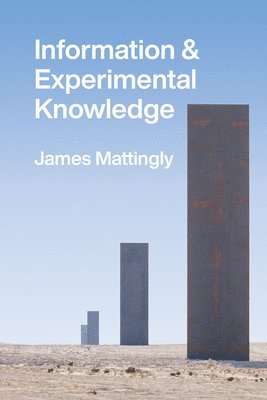
Fler böcker inom
- Format
- Häftad (Paperback)
- Språk
- Engelska
- Antal sidor
- 400
- Utgivningsdatum
- 2021-12-13
- Förlag
- The University of Chicago Press
- Dimensioner
- 229 x 152 x 20 mm
- Vikt
- ISBN
- 9780226804811
- 499 g
Information and Experimental Knowledge
Häftad,
Engelska, 2021-12-13
432
- Skickas från oss inom 5-8 vardagar.
- Fri frakt över 249 kr för privatkunder i Sverige.
Finns även som
Passar bra ihop
De som köpt den här boken har ofta också köpt The Devils av Joe Abercrombie (häftad).
Köp båda 2 för 651 krKundrecensioner
Har du läst boken?
Sätt ditt betyg »
Fler böcker av James Mattingly
-
Machine Agency
James Mattingly, Beba Cibralic
Övrig information
James Mattingly is associate professor in the Department of Philosophy at Georgetown University.
Du kanske gillar
-
Quicksilver
Callie Hart
Häftad -
Say You Swear
Meagan Brandy
Häftad -
The Creative Act
Rick Rubin
Inbunden


